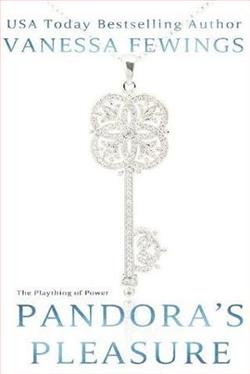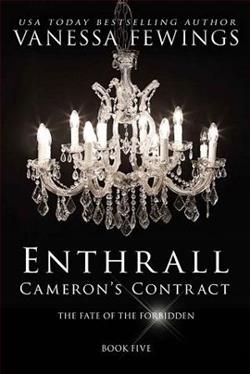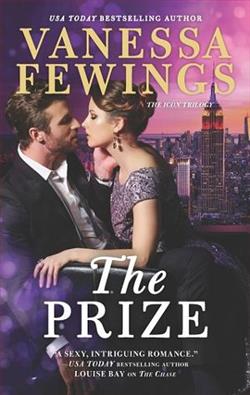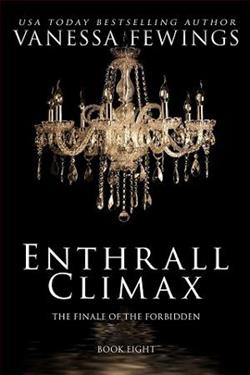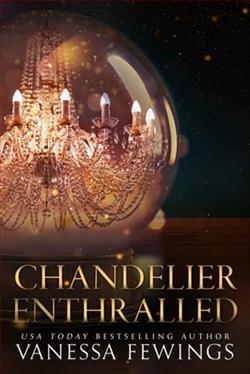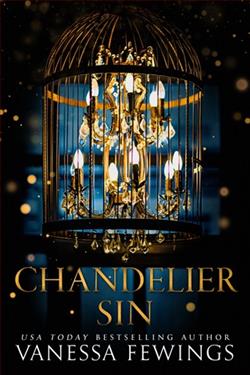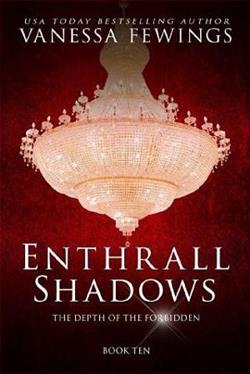Page 124 of The Blood Orchid
Wenshu laughed, the sound sharp, echoing across the valley. “Us?” he said. But I knew, even then, that his words weren’t truly doubtful. He just needed one of us to say it first, to believe.
“What’s so funny?” Yufei said. “I hear the food is good there.”
“I hear the streets are paved in gold,” I said.
“They can’t be. They would get dirty too fast,” Wenshu said, crossing his arms. “I suppose we’ll just have to see for ourselves one day.”
“One day?” I said.
Wenshu nodded, and Yufei bit the other half of my rice ball out of my hand. In that one beautiful summer night, our dream was whole and unbroken, untouched by the cruelty of the world. Perhaps that new sapling of hope was the greatest currency an alchemist could offer to the hungry jaws of alchemy. Nothing more than the whispered beginnings of a dream.
Chapter Twenty-Six
Li Hong, Emperor of Tang
Once, death was my greatest fear.
When you live in a court of eternal life, where everyone’s skin glitters with gold, their bodies slowly calcifying into statues, you are raised to believe that death is the worst thing that can happen. For people like us, death means sacrificing power. It means crossing into an After that is inevitably less gilded and glorious than this life.
But death was much simpler than I thought.
After I died, I passed lonely nights on the banks of a river with no temperature, an endless ribbon of time with days I no longer counted, a moonless sky, and soundless woods. I was a whisper of wind between silver grass, the pale reflection of moonlight cast across a pond.
I only remembered my name when she came to visit me.
I saw her and then there was light, and the shadows had sharp edges, and the river was once again cold on my feet, and I was something and someone separate from the blur of endings. I never told her that when she left me, I could feel myself growingroots into the cold earth, colors fading into the forest. I never wanted her to know, to hurt for me more than she already did.
But even death has an endpoint.
One day, the walls of the forest fell away, and I was back in the palace where I had died, my sister’s hand in mine. My home was crumbled and ruined, but it wasreal, I was real, feeling as if I’d spent the last month dreaming.
Upon my arrival, the royal alchemists were already giving orders that I was all too glad to take. They wrote laws for me to sign that they promised would fix the country, and I trusted them because Zilan had, because following their orders felt like following hers.
Zheng Sili appeared among their ranks on the second day, clutching a full written proposal as to why he deserved to work in the court even though he could no longer do alchemy. He’d only gotten through the first sentence before I told him to save his breath, that he could stay here as long as he liked. He was Zilan’s friend, so he was mine.
I think all of them knew that I was a dreamer, not an emperor. They seemed all too prepared to have me as their puppet, and for the time being, I couldn’t bring myself to care. The only order I gave was to send ships out to the Bohai Sea, the last place that had mentioned Penglai Island in any written record.
Even without alchemy, the royal alchemists destroyed the private armies within a week. They offered the peasant soldiers more money to work for the palace, distributed food to the poorer districts, and declared the hiring of private armies illegal, punishable by death regardless of one’s class. It only took one public execution before the aristocrats realized, with horror, that they would be punished like peasants for disobeying.
Soon after, I officially became the emperor. I dressed in yellowrobes that once were only for my father and watched the crowd of my sparse city bow to me with a reverence I didn’t deserve. That same night, the Paper Alchemist reported that the ships in Bohai had returned empty-handed.
“Send them out again,” I’d said, leaving no room for comment.
Day by day, the world began to shift.
From my window, I watched as the shattered rooftops of Chang’an were retiled, as the rain washed away the bloodstains, as the market stalls were repaired and the pear trees lining the canals flowered once again. The palace walls were rebuilt with clay, the bloody ponds drained and replaced with fresh water, and soon it was hard to see that anything had changed at all.
But I sensed the newness of this world in small ways that no one else would believe.
At first, I noticed that rain would only fall at night, the clouds scattered by morning, the sky more blue and open than I’d ever seen it in my lifetime. The moonlight seemed sun-bright every evening, casting the palace in silver light. The plum blossom trees in the courtyard flowered even though it was the middle of summer.
I asked the magistrates how the other cities under their control were faring, and they told me that the homes had been rebuilt, the dead buried, extra rice safely delivered. Disease and disquiet had tapered off, and for now the world was calm.
Of course, that was exactly what they would tell a new emperor, even if it was a lie.
So I sent Zheng Sili out to do a circuit of the northern cities in my place. He returned a week later and confirmed that what the magistrates said was true.
There were no signs so drastic that I could fully attribute it to the loss of alchemy. But life gold had taken nearly a centuryto destroy China, so surely it would take just as long to recover. This was only a quiet beginning.








